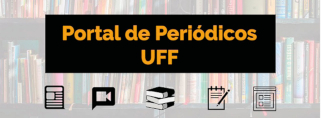EVALUATING PUBLIC PERCEPTIONS AND PREFERENCES FOR ENVIRONMENTAL EDUCATION ACTION AGAINST GLOBAL CLIMATE CHANGE AT RIO DE JANEIRO, RJ, BRAZIL
DOI:
https://doi.org/10.22409/resa2015.v8i3.a21212Abstract
Evaluating the perception and preferences of a target public, are essential for the planning and execution of environmental education projects. This paper presents the results of a survey developed aiming future planning a university extension action of environmental education at UERJ at the event called "Desapegue-se” that means literally “Let it go”, this event is held in the square Edmundo Rego, city of Rio de Janeiro (Brazil), inspired in Paulo Freire's principles applied in environmental education. Every month on Sundays from April to July 2014, questionnaires were applied to the square visitors. The data were analyzed by chi-square test and Kruskal-Wallis test to assess significant differences (p <0.05) in the observed patterns. The audience was comprised of 83 respondents of different profiles. Most (66%) were females, from 24-43 years (80%), college graduates and high school (71%), with wage between 10-20 Brazilians minimum wages (89%) The majority (70%) visited the event more than five times. Significant differences occurred only in the order of preference of methodological strategies for environmental education. The major results are presented here: a.) The inhabitants of Grajaú prioritized "film and discussion", "photography exhibition", "lecture and discussion", "conversation circle", "group dynamics" and "board games"; b) the other districts prioritized, "lecture and discussion", "photography exhibition", "conversation circle", "film with debate", "group dynamics" and "board games". The self-employed respondents are the most interested in attending activities at UERJ. Environmental education has among its assumptions the participation of their public aiming its efficiency and the role of the citizen identifying the methodological strategies allows a more effective learning, expanding their awareness and potential for understanding the world in a dialogical and questioning perspective.
Downloads
Downloads
Published
How to Cite
Issue
Section
License
Os autores que publicam nesta Revista concordam com os seguintes termos:
1. Autores mantém os direitos autorais e concedem à revista o direito da primeira publicação.
2. Autores têm autorização para assumir contratos adicionais separadamente, para distribuição não-exclusiva da versão do trabalho publicado nesta revista (ex.: publicar em repositório institucional ou como capítulo de livro), com reconhecimento de autoria e da publicação inicial nesta revista.









